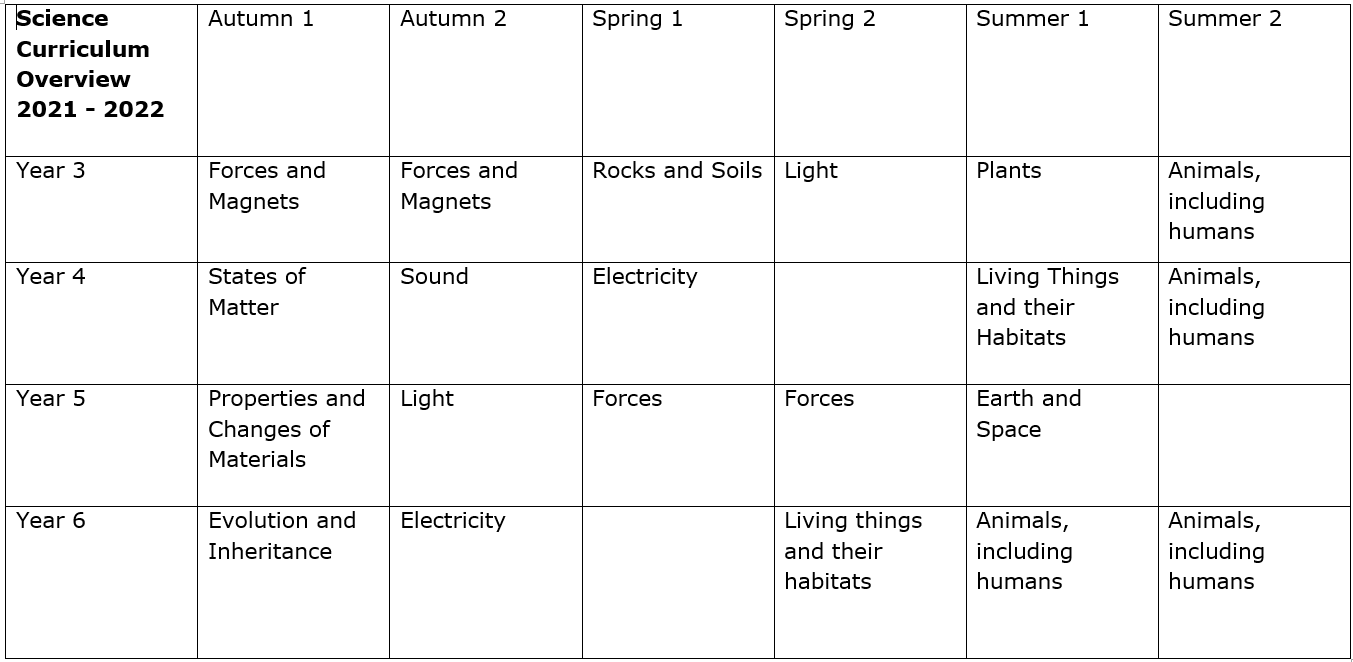Science
Intent
Science stimulates and excites pupils’ curiosity about phenomena and events in the world around them. It also satisfies this curiosity with knowledge. Science links practical experience with ideas and it engages learners at many levels. Through science, pupils understand how major scientific ideas contribute to technological change - impacting on industry, business, medicine and quality of life. Pupils recognise the cultural significance of science and trace its worldwide development. They learn to question and discuss science –based issues that may effect their own lives, the direction of society and the future of the world.
Scientific studies should help pupils:
- To maintain and/or stimulate pupil curiosity, interest and enjoyment in science to encourage future study.
- To enable pupils to be familiar with a body of scientific knowledge, principles and vocabulary.
- To enable pupils to see science in the context of a wider body of knowledge and skills.
- To enable pupils to understand and use scientific methods, safely by incorporating risk assessment as normal practice.
- To give children the experience to acquire practical skills e.g. using a Thermometer.
- To provide experience of the scientific process skills of ‘Working Scientifically, helping children to develop and apply these progressively in meaningful contexts.
- To help children acquire a progressive understanding of scientific knowledge.
- To prepare children for life in an increasingly scientific and technological world so that they can make informed decisions and choices in future life.
Implementation
Teaching:
The science curriculum is taught through topics. Topics are carefully chosen to enable the children to engage in challenging, motivating and enriching activities which enables all pupils to achieve success. We encourage a sense of wonder of the world around them.
Carefully planned topics enable the teacher to teach the knowledge required by the National Curriculum whilst giving the children a purpose to develop and apply their skills. This ensures that children in our school are given opportunities to learn in cohesive blocks and ‘stick’ their learning together each year, building on previous knowledge, skills and experiences. The detail of our learning journey for science is contained in our curriculum overview and in our skills and progression map.
Curriculum Planning and Organisation
The curriculum overview for science has been organised into different units, which have been designed to cover the knowledge, skills and understanding of science, whilst at the same time, using links to other areas of the curriculum where appropriate. This plan is continuously evaluated to meet the needs of the children in our school.
Questioning is a key element in science. Pupils should be asking the questions where and what, how and why in order to help them make sense of the world around them.
Impact
Assessment
Assessment of children’s work in science is ongoing. The assessment will include the children’s skills and as well as by outcome. These outcomes are celebrated in the children’s science books.
- Assessment of the pupil’s scientific work is made through oral and written responses.
- A teacher assessment is given at the end of the year which is recorded on Arbor.
Curriculum Overview

Attached below is the progression of skills in Science at Queen Eleanor's.

